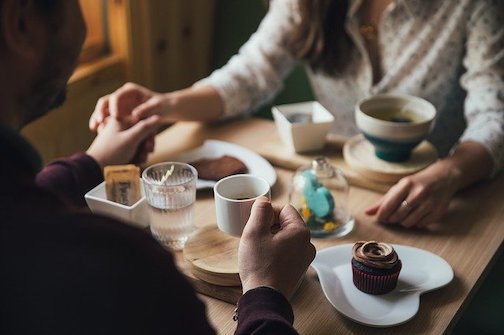When Not To Start a Relationship
By Dr. Margaret PaulJanuary 29, 2008
I have often been asked by my clients, "Am I ready for a new relationship?" Discover whether or not you are ready.
 Have you recently lost or ended a relationship or are you recently divorced? Are you thinking about dating again?
Have you recently lost or ended a relationship or are you recently divorced? Are you thinking about dating again?
Many times, putting yourself back into the dating scene is a good idea. But how can you know when it is time to start a new relationship?
Here are some questions to ponder:
1. Are you fully over your last relationship, or do you still have hope of reconciliation?
If you still fantasize about getting back with your partner, then you are not truly available for another relationship. Is there really a possibility of reconciliation, or are you making up the possibility? If there really is a possibility, then it is certainly not time to date. If the relationship is really over, then you need to fully accept this before moving on to another relationship. As long as you are in denial about the relationship being over, you are not fully available for another relationship.
2. If your partner has died, do you feel ready for a new relationship?
If you had a loving relationship with your deceased partner, and you have moved through the grief of your loss, then any time you feel ready is fine. You already know how to have a good relationship, so there is a good chance of having another good relationship when you feel ready for it.
3. Have you fully explored your part of why your relationship ended?
When a relationship goes on the rocks, it is because each partner is contributing to the problems. It is always fairly easy to see what the other person did that caused problems, but much harder to see what you did.
It may be necessary for you to have therapeutic help in understanding your end of the relationship issues. I have been working with individuals and couples for many years and I have seen that people tend to repeat the same patterns in relationships over and over, unless they do some healing work. Even if, at the beginning, a new relationship looks different from your other relationships, there is a good possibility that it will end up the same.
Many relationships create a system with one person being a caretaker and the other being a taker. These roles can switch in different relationships and around different issues. Unless you heal your tendencies to be a caretaker or a taker, you will continue to create relationship systems that don't work.
Underneath all relationship dysfunction are control issues. Whether you control with anger, righteousness, blame, judgment, compliance, resistance, or withdrawal of love, until you heal the self-abandonment leading to the fear that motivates controlling behavior, you will continue to create relationship problems.
This does not mean that these issues need to be healed before starting a new relationship, but it does mean is that you need to be in the process of healing to have a chance at a good relationship.
4. Do you feel available for a new relationship?
Most people have two bottom-line fears when it comes to relationships: the fear of rejection and the fear of engulfment, which means the fear of losing the other or the fear of losing yourself. These are deep fears that start in childhood and may continue throughout your life, making it difficult for you to be fully emotionally available in a relationship.
These fears do not just go away. Until you practice Inner Bonding and develop a powerful loving adult self, you may take rejection personally and not know how to handle loss. Without a strong loving inner adult, you may allow others to control you, giving yourself up to prevent rejection.
Again, these fears do not need to be healed before starting a relationship, but unless you are in the process of healing them and continue to do Inner Bonding work within a relationship, there is a good chance that you will recreate another unsuccessful relationship.
A relationship is a wonderful arena for healing and growth when both people are devoted to learning to be a strong loving adult. If you are on a devoted healing and learning Inner Bonding path, make sure that your new partner is also on a learning and healing path.
Heal your relationship with Dr. Margaret’s 30-Day online video relationship course: Wildly, Deeply, Joyously in Love.
 Send this article to a friend
Send this article to a friend  Print this article
Print this article  Bookmarked 7 time(s)
Bookmarked 7 time(s)
Comments
| Author | Comment | Date |
|---|---|---|
| Join the Inner Bonding Community to add your comment to articles and see the comments of others... | ||

Daily Inspiration
When we die and leave our bodies, all fear falls away. We are left with our pure Self. Did we allow this Self to shine? Or did we cover this Self with a shroud of fear? That is the question we will be faced with when we leave our bodies. Let's not wait. Let's face it now.
By Dr. Margaret Paul

 Share with Del.icio.us
Share with Del.icio.us Share with Digg
Share with Digg






